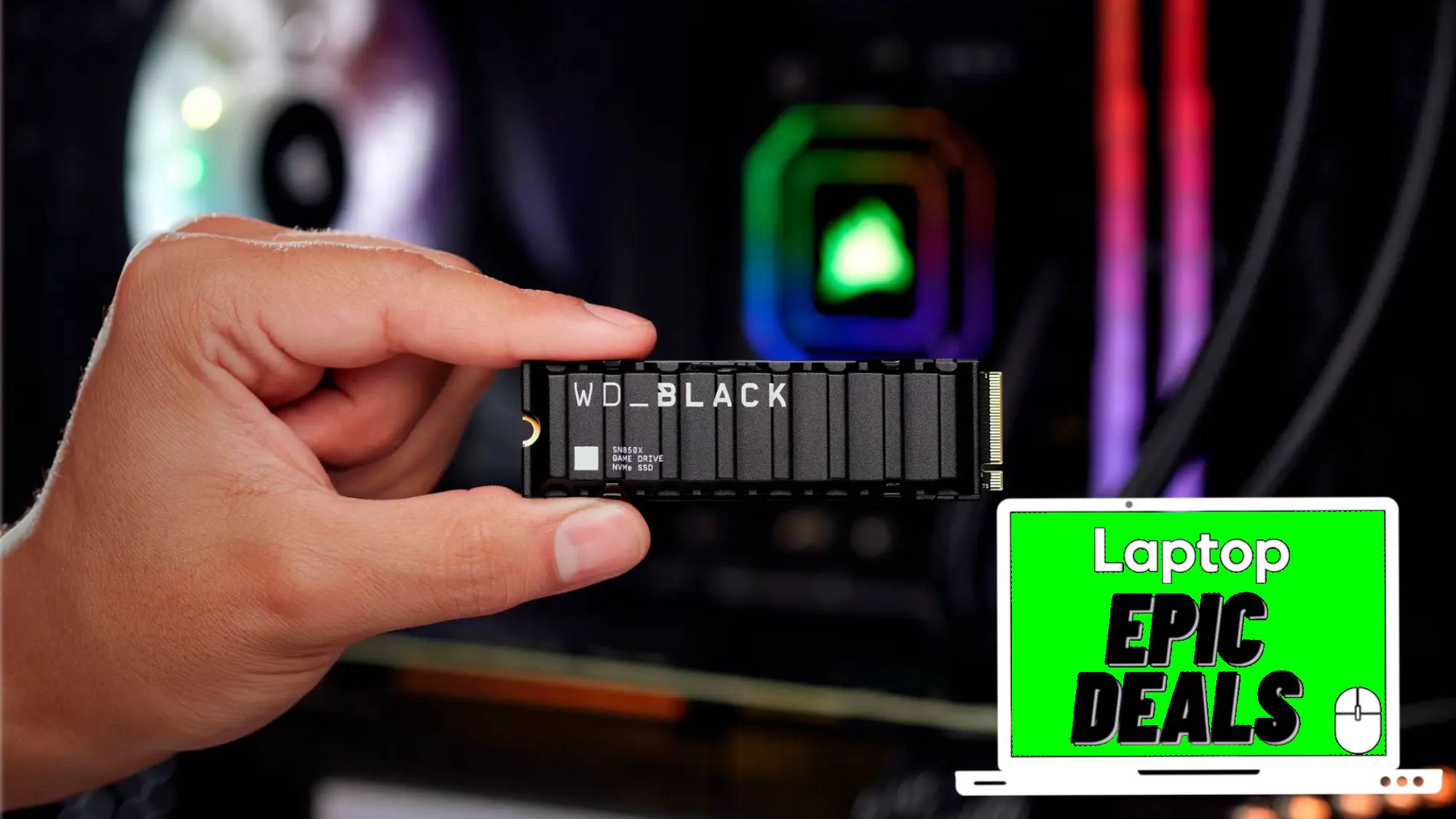Oura VP on Samsung Galaxy Ring: 'Companies are scared of missing out on the next big wave'
An Oura of confidence
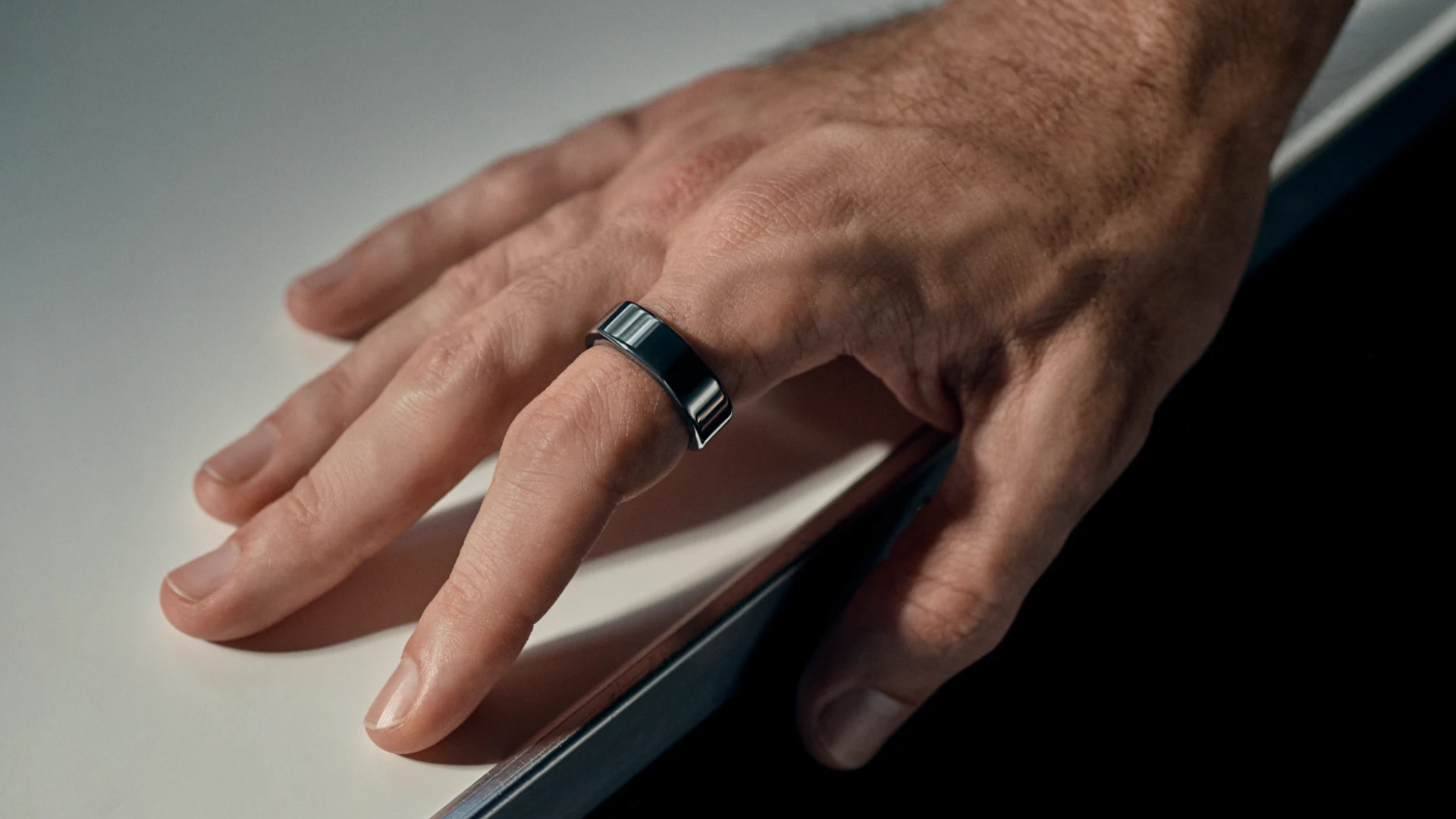
At January's Unpacked event, the Samsung Galaxy Ring announcement was the company's one more thing moment, and it drew attention to an entirely new market to most consumers. The smart ring, while having been commercially available since 2013's McClear RingPay (which allows for contactless payments through a swipe of your hand), is still an emerging market, sitting patiently on the fringes of the mainstream and waiting for its moment in the spotlight.
The current figurehead of the smart ring market, the Finnish health technology company Oura Health, has backed the wearable since a successful Kickstarter campaign allowed it to release its first product in 2015: the Oura Ring. Since that time, the company has gone on to refine its smart ring, currently in its third generation and able to track over 20 biometric signals, to offer impressive and unparalleled health and living tracking.
It used to be a rare occasion to see larger brands like Samsung take leaps into smaller markets. However, the last few years have seen such events happen en masse. I was curious to know the impact that Samsung's announcement of the Galaxy Ring had on a company like Oura, and what its perspective was on such an event. So, I reached out to the company for comment on several points of interest.
The following questions were answered by Oura's VP of Consumer Software, Jason Russell.
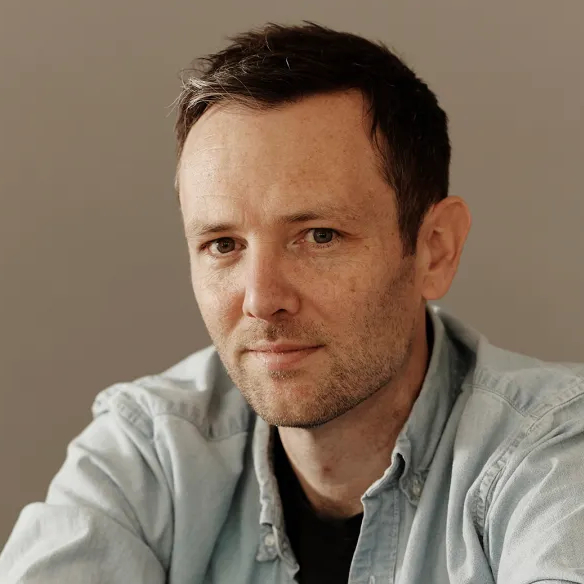
Jason Russell is an accomplished product leader with 17 years of experience building consumer products and digital experiences. Currently VP of Consumer Software at Oura, Russell is helping people improve their health and well-being through data and insights about their daily activity, rest, and recovery.
Q: To me, smart rings are still on the periphery of the mainstream when it comes to broadly adopted consumer tech.
It feels like at around this time, for a lot of markets in a similar place, a company like Samsung or Apple routinely seems to swoop in and almost "gentrify" the space with claims that things are only made possible by their specific technology or innovation.
How does it feel to have such a large company emerge into the market?
Stay in the know with Laptop Mag
Get our in-depth reviews, helpful tips, great deals, and the biggest news stories delivered to your inbox.
A: "New players like Samsung entering the space is validation for the category. That said, we’ve been around for over a decade, and in that time, we have invested heavily in research and development to improve the accuracy of our algorithms and introduce new, innovative features to truly make Oura an everyday health companion.
Outside of developing features, we continue to find integrations with partners that deliver the best value to our members. We also have one of the strongest IP portfolios — in both hardware and software — for the smart ring form factor, with hundreds of granted patents, pending patent applications, and registered trademarks."
Q: 2024 is a year that looks set to feature a lot of big brands entering emerging spaces. The Vision Pro is entering the VR/AR market, MSI is jumping into the handheld gaming space, and of course now Samsung has announced its Galaxy Ring. Why do you think this is?
Many companies are scared of missing out on the next big wave
Jason Russell, Oura
A: "Coming off the heels of 2023, which was a big year for tech innovation, it’s not surprising that 2024 is kicking off similarly. Many companies are scared of missing out on the next big wave and are jumping in on the latest and greatest tech - the smart ring being the most recent example.
We’re prepared to stay ahead of the curve and drive value for our members by launching new features and partnerships, growing our Medical Advisory Board, and continuing to invest heavily in research, both for product development purposes and for understudied public health topics."
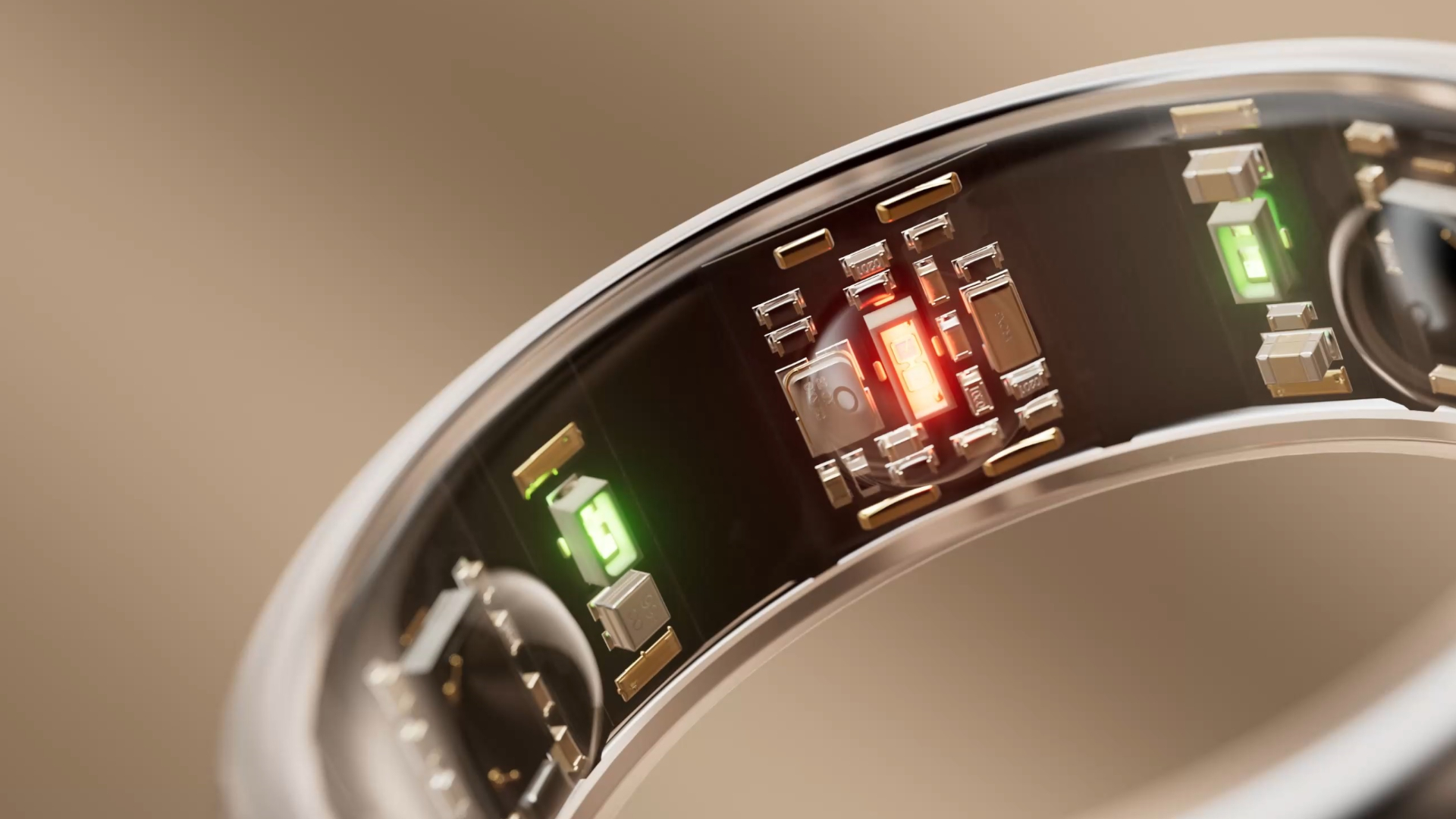
Q: Smart rings are a great product, but their form factor can be very constrictive in terms of carving out a unique identity for people to immediately connect with or recognize.
How does Oura approach the design of its products to differentiate them from other options?
we are continually pushing the boundaries of fashion and function in a way that is unique to our brand.
Jason Russell, Oura
A: "Oura originally chose the ring design because the sensors in the ring read directly from the arteries in the finger, whereas smartwatches (or wristables) sit on the top of the wrist, far away from the arteries that are on the bottom of the wrist. In the last decade, we have achieved unparalleled science-backed accuracy and invested hundreds of millions of dollars in R&D, design, and manufacturing.
As seen with our most recent Horizon design, as well as our collaboration with Gucci, we are continually pushing the boundaries of fashion and function in a way that is unique to our brand. Our comfortable and convenient design seamlessly integrates into members’ lives."
Q: Oura is the holder of many patents and trademarks on smart ring tech and has years of product feedback from customers and testing under its belt.
How vital is that information when it comes to securing your place in the smart ring market, and in which direction do you see the smart ring heading in the near future?
A: "We view our IP portfolio as a critical piece in remaining a leader in the smart ring market, and we are proud of the extensive amount of time and resources we have put into our research and development over the last ten years that we have been in the market.
Wearables will not only track health data, but also be able to provide more personalized insights and recommendations to users, helping them to make informed decisions about their health and lifestyle.
Jason Russell, Oura
Looking ahead, the progression of health technology will increasingly put power and information back into people’s hands to promote a more proactive approach to healthcare. Taking your temperature or measuring your heart rate at one particular point in time at the doctor’s office is not going to accurately reflect the state of your health - continuous monitoring of these factors through wearables, however, can provide insights into individual baselines to illuminate the impact of health behaviors over time.
Additionally, with advancements in AI and machine learning, we anticipate that wearables will not only track health data, but also be able to provide more personalized insights and recommendations to users, helping them to make informed decisions about their health and lifestyle.
Personalized data can help patients become better informed, more active in their care, and more empowered to make decisions that are right for their unique makeup. We’re moving from a one-size-fits-all model to individualized treatment."
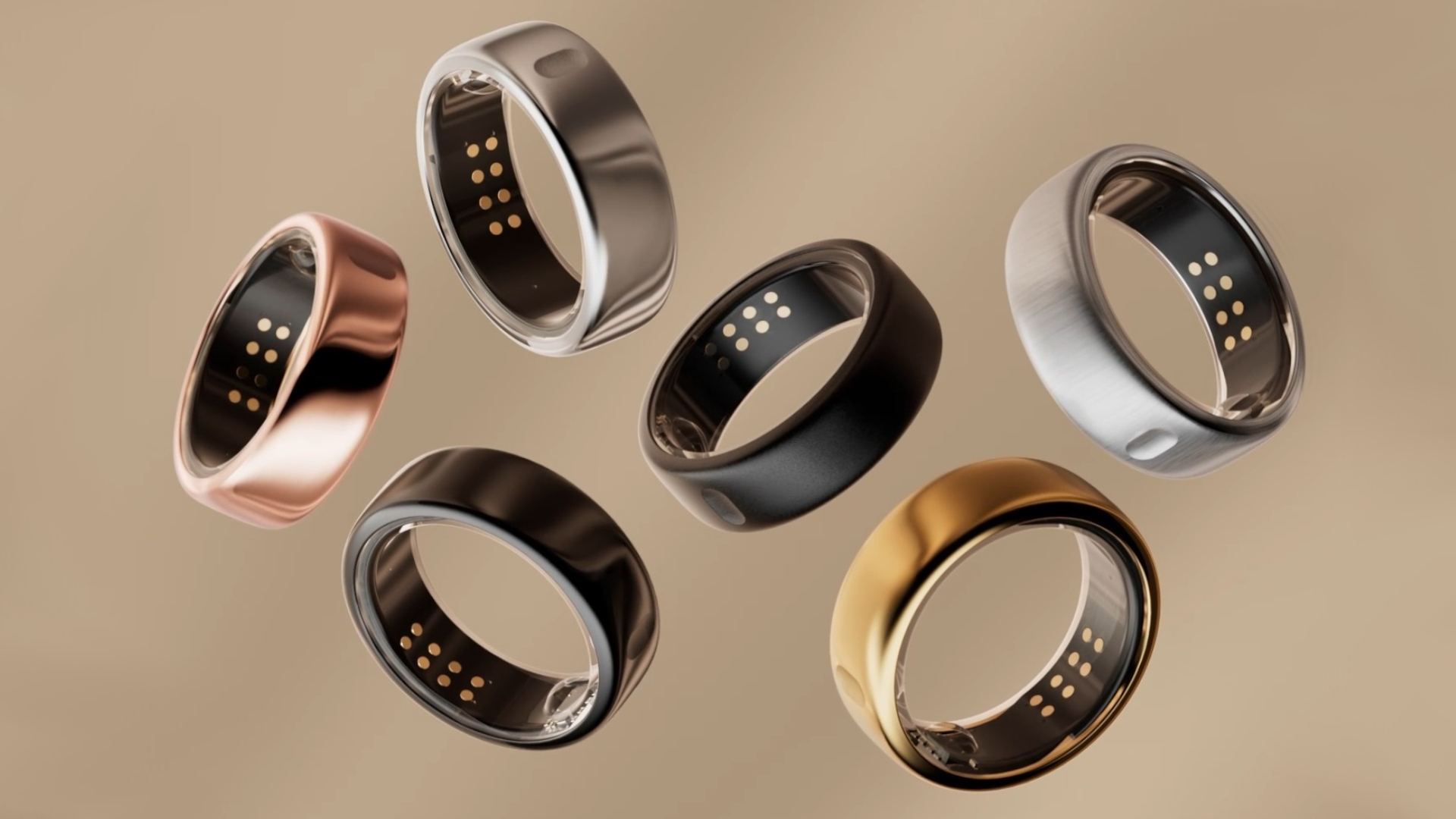
Q: You've said yourself that Oura's audience stretches from Gen Z to "boomers," but how wide does that adoption stretch?
Are these wearables solely for fitness and health enthusiasts, or is there something about Oura smart rings that makes them a great accessory for the average person on a day-to-day basis?
Other wearables push you to meet performance or activity goals, our promise is that we will always meet you where you are – as you are
Jason Russell, Oura
A: "Oura was originally designed as a sleep tracker instead of a fitness tracker because sleep impacts all aspects of health - productivity, memory, performance, fertility, and more. Since then, Oura has evolved to provide a holistic approach to health, including insights into sleep, stress, activity, menstrual cycles, and more.
While other wearables push you to meet performance or activity goals, our promise is that we will always meet you where you are – as you are – to help guide you on your journey to optimize your health goals, whatever they may be.
We are passionate about building products that celebrate and support uniqueness, inclusivity, and diversity, and we prioritize accessibility by providing easy-to-understand insights alongside your data to help you understand your trends over time."
Q: As a non-smart ring wearer myself, what are some of the things that I'm missing out on by sleeping on this tech?
A: "Oura Ring packs state-of-the-art heart rate, heart rate variability (HRV), temperature, activity, and sleep monitoring technology into a convenient, non-invasive ring. Each day, these personalized health metrics are summarized into three scores: Readiness, Sleep, and Activity.
While not a medical device, the Oura Ring has capabilities that are nearly perfect when compared to advanced medical technologies, such as a sleep staging algorithm that achieves 79% agreement with gold-standard PSG for 4-stage sleep classification. We regularly hear from our members about the positive impact Oura has had on their lives, ranging from improving sleep to managing chronic diseases to starting a family.
Furthermore, Oura is constantly developing new features and expanding our product offering through our extensive partnership ecosystem. In 2023, we announced a slate of new features to serve our members, including a new Stress Management feature set, Cycle Insights, Circles, Share Report, and Chronotype, released customizable iOS widgets alongside a new Apple Watch companion app and complications, and tracked more than 2.3 billion hours of sleep on the heels of our 10-year anniversary.
In addition, our partnership ecosystem is 600+ strong and growing, including partnerships with Equinox, Headspace, Best Buy, Talkspace, and Natural Cycles, with plans to double down in specific focus areas with partners across several sectors including women’s health, metabolic health, behavioral health, and fitness and lifestyle."
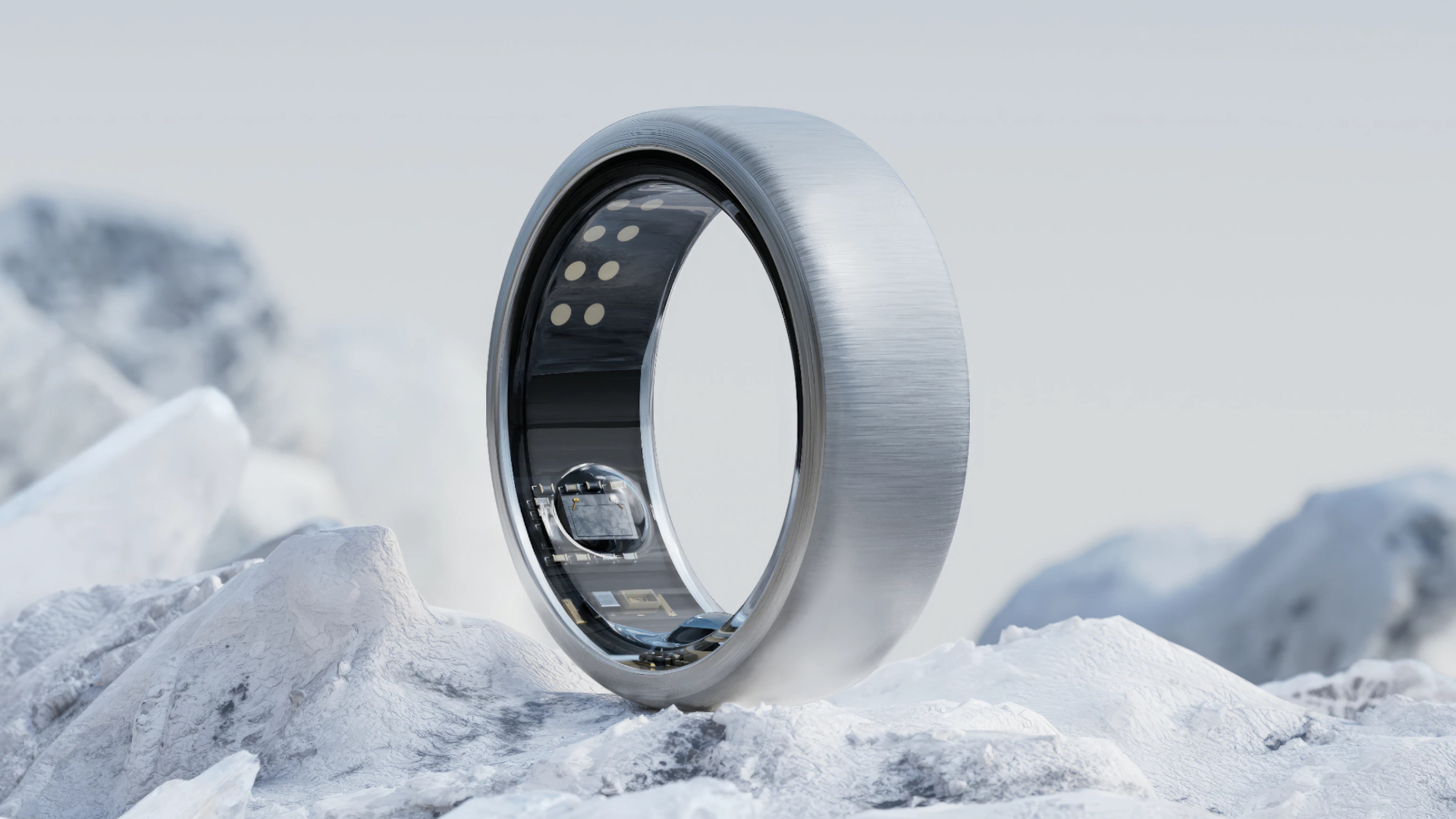
Outlook
As a voice for Oura Health, Russell paints the brand as confident in the face of Samsung's impending emergence onto the smart ring scene. Backed by years of research and development and with an existing seven-figure customer base, Oura definitely has a leg up on Samsung in this area.
However, the spotlight has never shone so brightly on smart rings, and a brand with such name recognition as Samsung is a clear threat to Oura's claim to the smart ring throne. As mainstream attention turns more towards smart rings, many consumers will choose to stick with brands they know and love as they adopt this 'new' tech.
That being said, brands that carve out an identity for themselves early are often able to weather the storm, presenting themselves as veterans and OGs of the form with a reputation that precedes them. That's something that no brand, even as large as Samsung, can take away from them — and it may be what keeps Oura's products at the forefront of the conversation around smart rings in the years ahead.
As of May 2022, Oura has sold over one million smart rings, enjoyed by a wide slice of people, from Zoomers to Boomers. Russell indicated that the current community of Oura Ring wearers includes "members across 230 countries globally, including tech enthusiasts, celebrities, and athletes, such as Kim Kardashian, Joe Jonas, Damar Hamlin, Gwyneth Paltrow, and more."
To check out Oura's third-generation smart rings, visit OuraRing.com for more information on its Heritage and Horizon designs.
For breaking news and updates on all things smart tech, including smartphones, smart watches, smart glasses, and smart rings, follow Laptop Mag on TikTok, Twitter, Facebook, and Flipboard for the latest word as it arrives.

Rael Hornby, potentially influenced by far too many LucasArts titles at an early age, once thought he’d grow up to be a mighty pirate. However, after several interventions with close friends and family members, you’re now much more likely to see his name attached to the bylines of tech articles. While not maintaining a double life as an aspiring writer by day and indie game dev by night, you’ll find him sat in a corner somewhere muttering to himself about microtransactions or hunting down promising indie games on Twitter.
